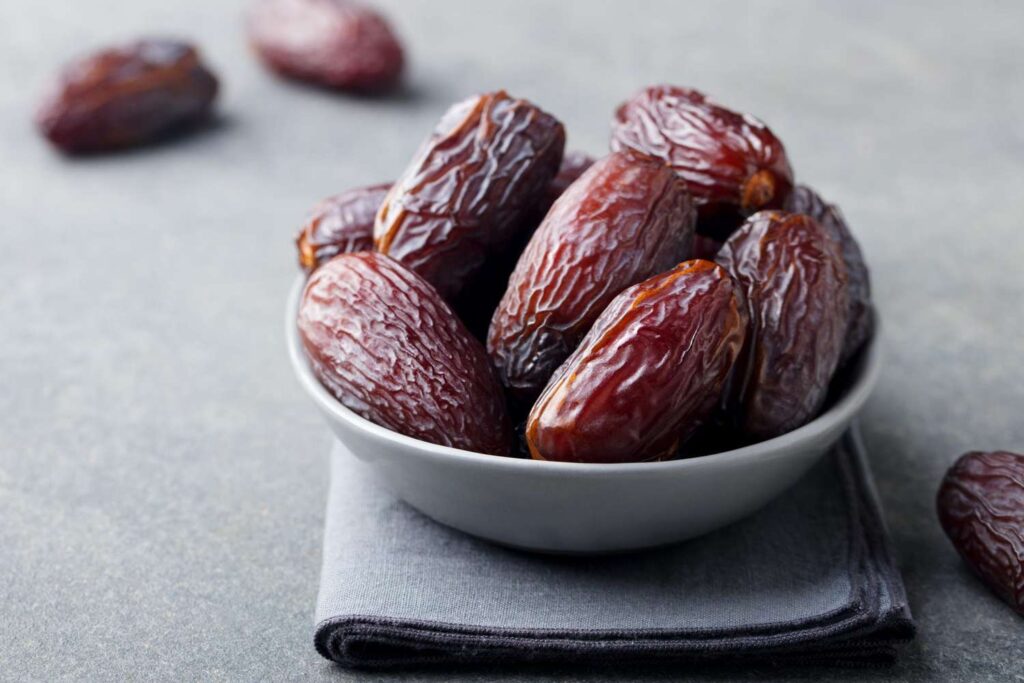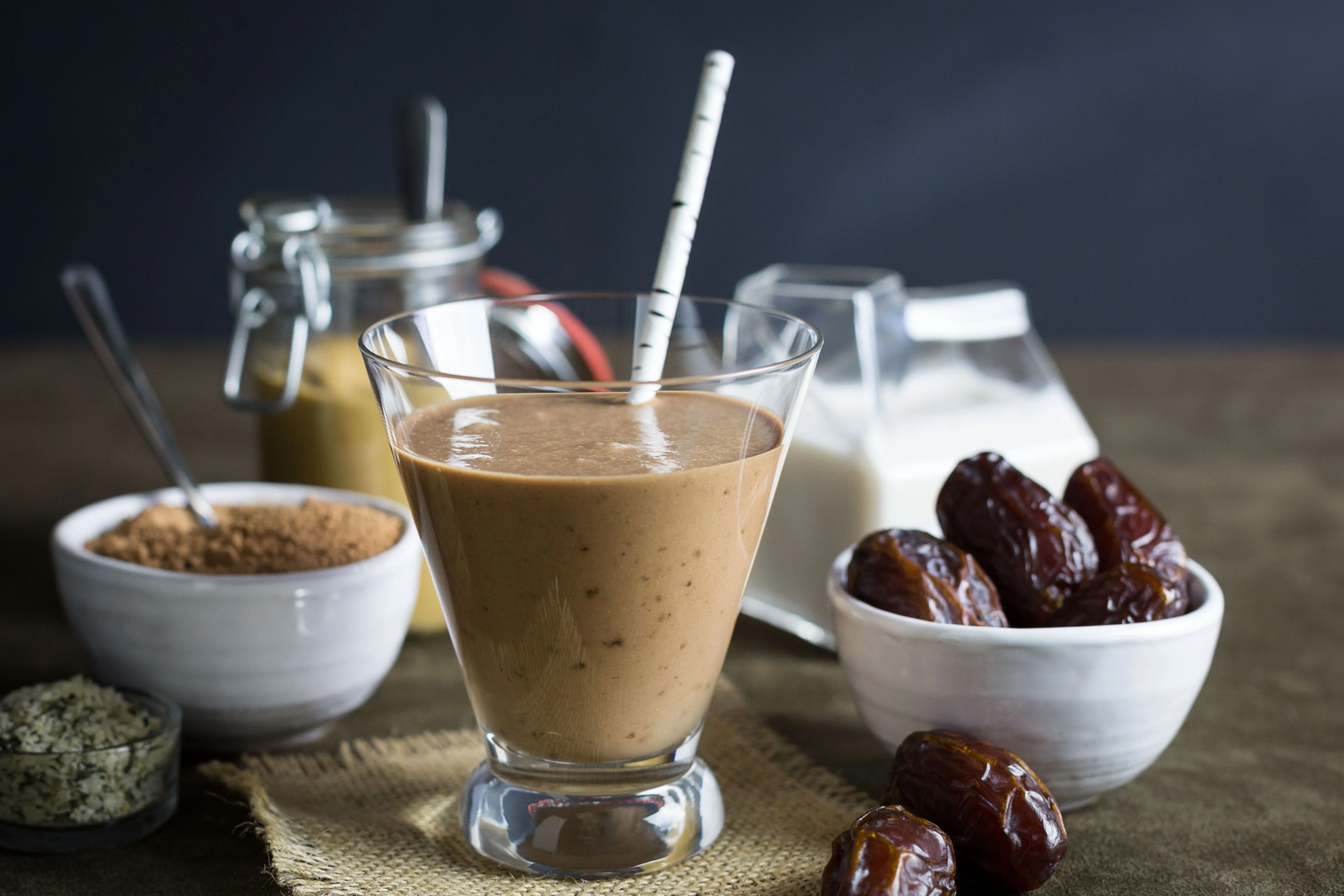Dried fruits have long been cherished for their natural sweetness, portability, and extended shelf life, making them a popular snack choice worldwide. Among these, dates stand out not only for their unique taste but also for their rich nutritional profile. But how do dates compare nutritionally to other popular dried fruits like raisins, apricots, figs, and prunes? Let’s delve into a comparison of the nutritional benefits to help you make informed choices.
1. Caloric Content and Carbohydrates
Dates are relatively high in calories compared to other dried fruits. A typical serving of 100 grams of dates contains about 277 calories, whereas raisins contain approximately 299 calories, prunes about 240 calories, and dried apricots around 241 calories.
When it comes to carbohydrates, dates are packed with them, with around 75 grams per 100-gram serving, most of which are natural sugars like fructose and glucose. Raisins and prunes also have a high carbohydrate content (around 79 grams and 64 grams, respectively). However, dried apricots come in lower, with roughly 63 grams of carbohydrates per serving. This makes dates an excellent source of quick energy, but it also means they should be consumed in moderation, especially by those managing their sugar intake.
2. Fiber Content
Fiber is crucial for digestive health, and dried fruits are a fantastic source. Dates contain around 6.7 grams of fiber per 100 grams, which helps promote bowel regularity and support overall digestive health. Prunes, however, take the lead in fiber content, boasting approximately 7 grams per 100 grams, known for their natural laxative effect.
Raisins provide about 3.7 grams, and dried apricots contain about 7.3 grams of fiber per serving. If your primary focus is on increasing your fiber intake, dried apricots or prunes might be a slightly better option than dates.

3. Vitamins and Minerals
Dates are rich in essential vitamins and minerals. They are particularly high in potassium, which helps regulate blood pressure, fluid balance, and muscle function. Dates provide about 696 mg of potassium per 100 grams, which is higher than the potassium content found in raisins (749 mg), prunes (732 mg), and dried apricots (1162 mg).
Dates also contain a good amount of magnesium, copper, manganese, iron, and vitamin B6. However, prunes stand out for their vitamin K content, which is vital for bone health and blood clotting. Dried apricots are an excellent source of vitamin A (in the form of beta-carotene), which supports vision, skin health, and immune function.
4. Antioxidants
Antioxidants are crucial in protecting the body from oxidative stress and free radical damage, which can lead to chronic diseases. Dates contain several types of antioxidants, including flavonoids, carotenoids, and phenolic acid. These compounds help reduce inflammation, lower the risk of chronic conditions, and protect the brain.
While dates are rich in antioxidants, dried apricots and prunes also offer significant amounts. Prunes, in particular, are noted for their high levels of phenolic compounds, which contribute to their antioxidant properties. Raisins also contain flavonoids, but their antioxidant content can vary depending on the drying process used.
5. Glycemic Index
The glycemic index (GI) measures how quickly a food raises blood sugar levels. Dates have a moderate glycemic index, typically around 42 to 55, depending on the variety and ripeness. Prunes also have a low GI, around 29, which makes them a good option for those managing blood sugar levels. Dried apricots and raisins generally have higher GIs, around 30 to 57, depending on their processing methods.
For those concerned about blood sugar spikes, dates and prunes may be preferable to raisins and dried apricots.
6. Health Benefits and Usage
- Dates: Known for their natural sweetness and chewy texture, dates are often used as a natural sweetener in desserts and smoothies. They are beneficial for boosting energy, aiding in digestion, and providing a quick source of potassium and magnesium.
- Prunes: Famous for their digestive benefits, prunes are commonly recommended for improving bowel health. They are also known to help maintain bone density due to their vitamin K and boron content.
- Dried Apricots: Rich in vitamin A and antioxidants, dried apricots are great for skin health, vision, and immune function. They are also lower in sugar compared to many other dried fruits, making them a slightly better option for those watching their calorie intake.
- Raisins: Raisins are versatile and can be added to cereals, salads, and baked goods. They are a good source of iron and potassium, which can help maintain heart health and support overall bodily functions.
Conclusion: Which Dried Fruit Should You Choose?
All dried fruits, including dates, raisins, prunes, and apricots, offer unique nutritional benefits. Your choice should depend on your specific dietary needs and preferences:
- If you need a quick energy boost or are looking for a natural sweetener, dates are an excellent option.
- For digestive health and a natural laxative, prunes are ideal.
- For vision health and a lower-calorie snack, dried apricots may be the best.
- And if you are looking for a versatile snack rich in iron and potassium, raisins are a great choice.
Incorporating a variety of dried fruits into your diet ensures you get a broad spectrum of nutrients, each contributing to your overall health and wellness.
Ajigofarms is a reliable global agricultural purchase sourcing with profound expertise in the manufacturing, and exportation of food crops. We are tested, and trusted suppliers of all kinds of cash crops and food crops. Our constant supply chain solution makes exporting easy, quick, and safe, we are identified with timeliness and meeting up with deadlines. Regardless of the region you are located in worldwide, you can reliably order your Agric products and be rest assured of successful delivery.




